
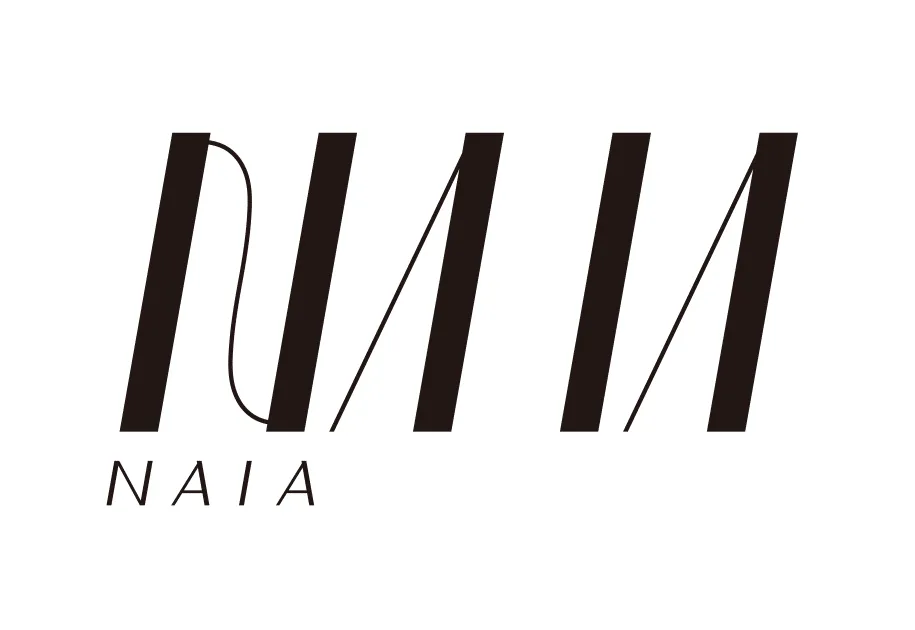
Veterinarians Recommend Natural Air Sprays for Pet Odor Control and Safety
Ensuring Pet Health: Natural Solutions from NAIA
In recent years, pets such as dogs and cats have become integral members of many families. However, managing odors like urine and body smells has emerged as a crucial aspect of maintaining a clean environment. This need to balance odor control with the health and safety of our furry friends has become a major focus among veterinarians.
Survey Overview
The company NAIA, which is headquartered in Suzu City, Ishikawa, recently conducted a survey targeting veterinarians to gather insights on the dual importance of odor management and safety in pets. The survey was carried out online from May 28 to May 30, with 1,001 veterinarians participating. The following key findings were observed:
- - High Use of Deodorizing Sprays: Approximately 70% of veterinarians reported using deodorizing sprays more than three times a day.
- - Safety as a Priority: The top consideration when selecting a deodorizing spray was the safety of animals, with 53.1% prioritizing this aspect over mere odor elimination.
- - Avoidance of Artificial Fragrances: Nearly 90% of the veterinarians actively avoid products containing artificial fragrances, indicating a strong awareness of potential health risks.
- - Preference for Natural Ingredients: Close to 90% of veterinarians expressed attraction towards products that use natural ingredients to combat odors, emphasizing a desire for effective yet safe solutions.
- - Overall Recommendation of Natural Room Sprays: A significant 90% of respondents stated they would recommend domestically produced natural room sprays, indicating a strong inclination towards products rooted in safety and trust.
- - Psychological Benefits of Natural Scents: Approximately 80% of veterinarians believe that natural scents, such as hinoki, help enhance relaxation and reduce stress for both pets and their owners.
The Need for Effective Odor Management
The issue of managing pet-related odors persists as a primary concern for pet owners. In the survey, veterinarians were asked about the most bothersome odors in environments that include animals. The top responses included urine (34.0%), body odors (32.1%), and vomit or other secretions (17.3%). These findings demonstrate the ongoing prevalence of unpleasant odors in veterinary offices and homes.
To tackle these odors, the most common strategies employed by veterinarians included the use of deodorizing sprays (46.3%), ventilation (42.7%), and air purifiers (37.7%). The frequent use of sprays multiple times a day reflects an urgent response to these odors, making deodorizing sprays a preferred method for odor management in animal care settings.
Key Criteria for Selecting Deodorizing Sprays
When choosing a deodorizing spray, safety emerged as the most critical factor. Over half of the veterinarians indicated they value animal safety above all else, followed by the product's duration of effectiveness (50.5%) and its deodorizing capability (46.0%). These preferences suggest that veterinarians prioritize quality and safety over cost when selecting products.
Interestingly, a significant focus was placed on the use of natural ingredients for effective odor control. The survey revealed that nearly 90% of veterinarians rated natural products as attractive due to their perceived safety and efficiency against pungent odors like ammonia. This inclination towards natural ingredients reinforces the idea that safety and effectiveness must coexist in pet odor control products.
Concerns Over Artificial Ingredients
Artificial fragrances often enhance the appeal of deodorizing products, but the study noted significant concerns from veterinarians about their potential negative impacts on pets. Approximately 90% of the participants indicated they are mindful of avoiding products with artificial scents, suggesting a deep-rooted caution against potential health risks associated with these substances.
Their concerns included possible stress or discomfort for pets, skin and coat issues, and respiratory or mucosal irritation.
Thus, the survey underscores a strong preference for natural, safe alternatives in the market, which many veterinarians feel are crucial in promoting both wellbeing and comfort for pets.
Conclusion: Promoting Safe and Effective Pet Care Solutions
The insights gathered from the survey conducted by NAIA shed light on the evolving preferences of veterinarians when it comes to products that handle pet odors. A clear trend towards safety, effectiveness, and psychological benefits indicates a need for products that ensure both the physical and emotional wellbeing of animals.
As the demand for safer, natural solutions grows, NAIA is proud to offer the Noto Hiba Spray, made entirely from natural ingredients. This solution not only addresses odor concerns but also aligns with the safety and comfort both pets and their owners deserve. By understanding the complexities of pet care, companies like NAIA can contribute significantly to the welfare of the pet community.
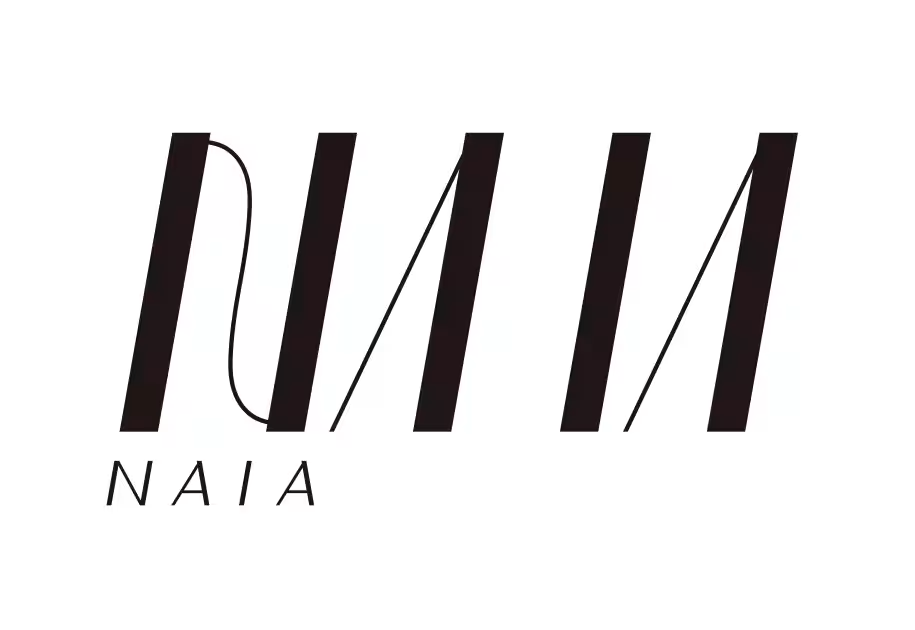
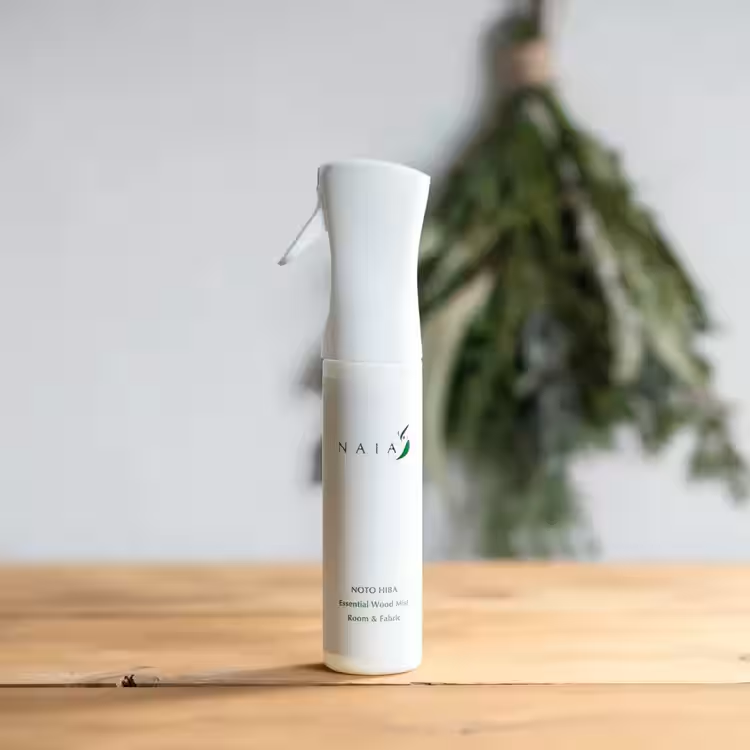
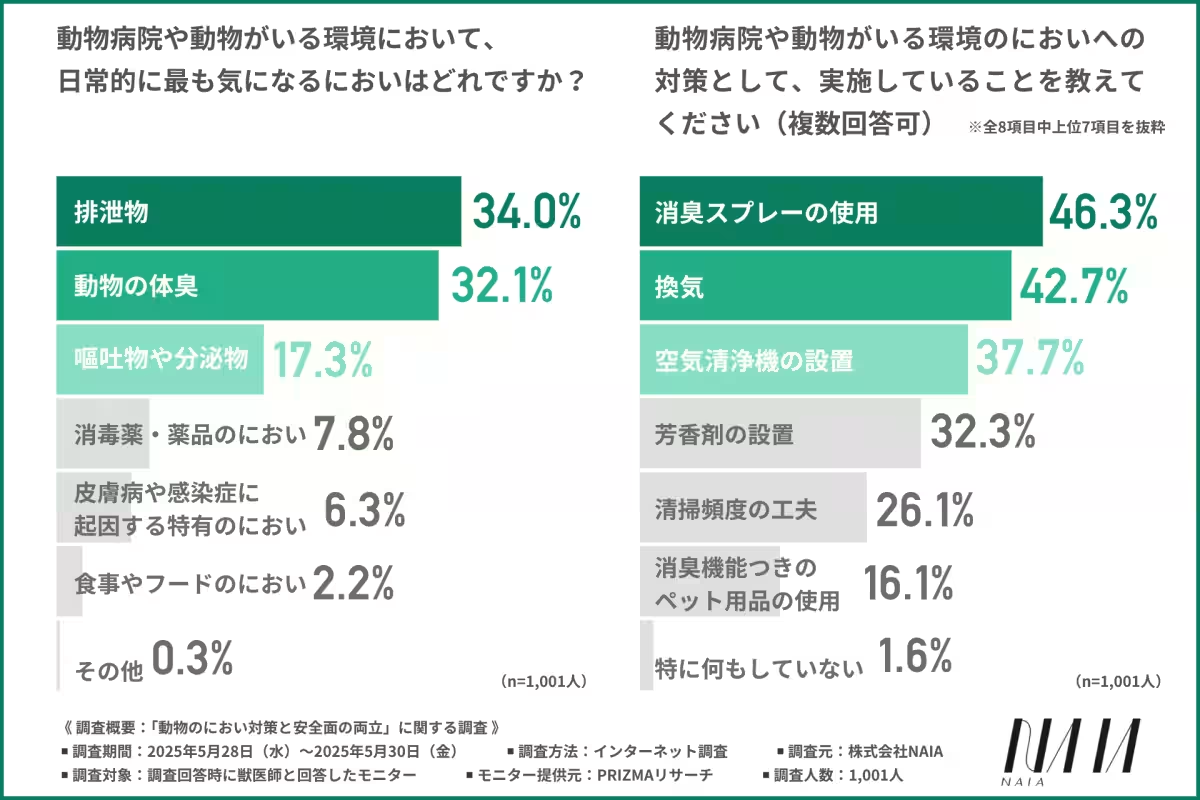
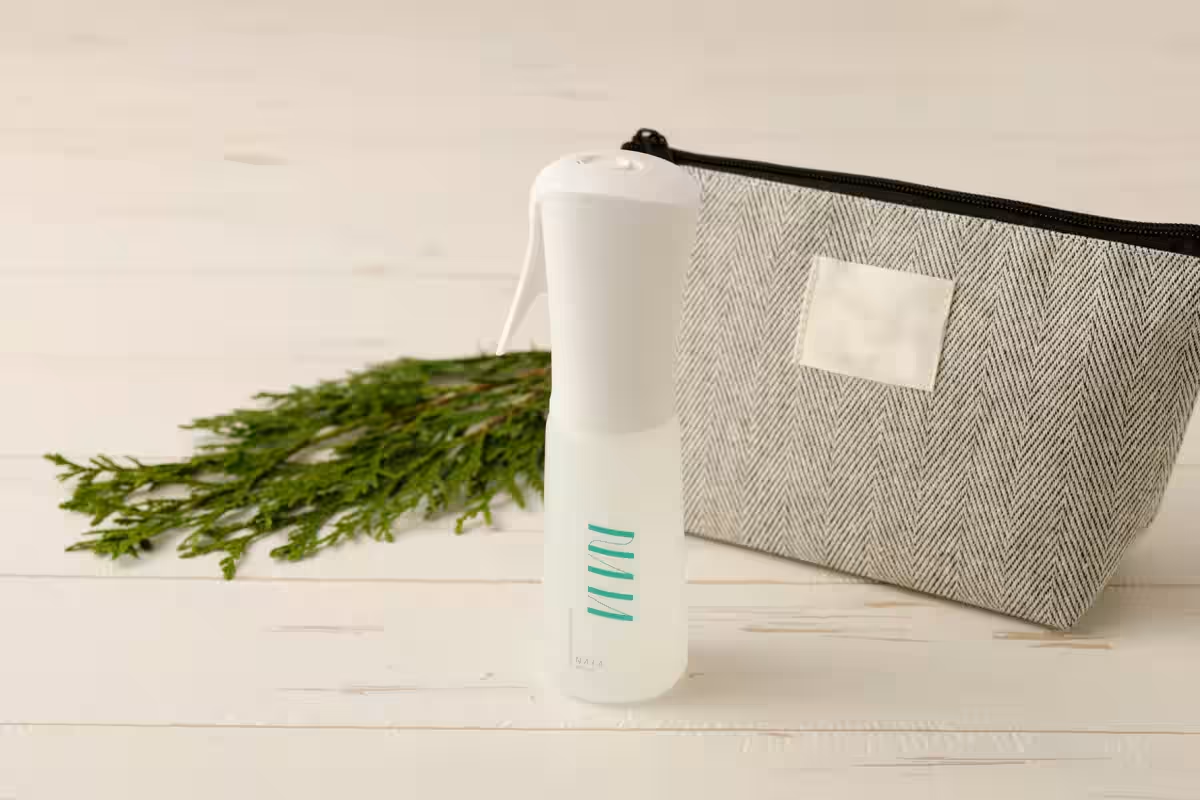
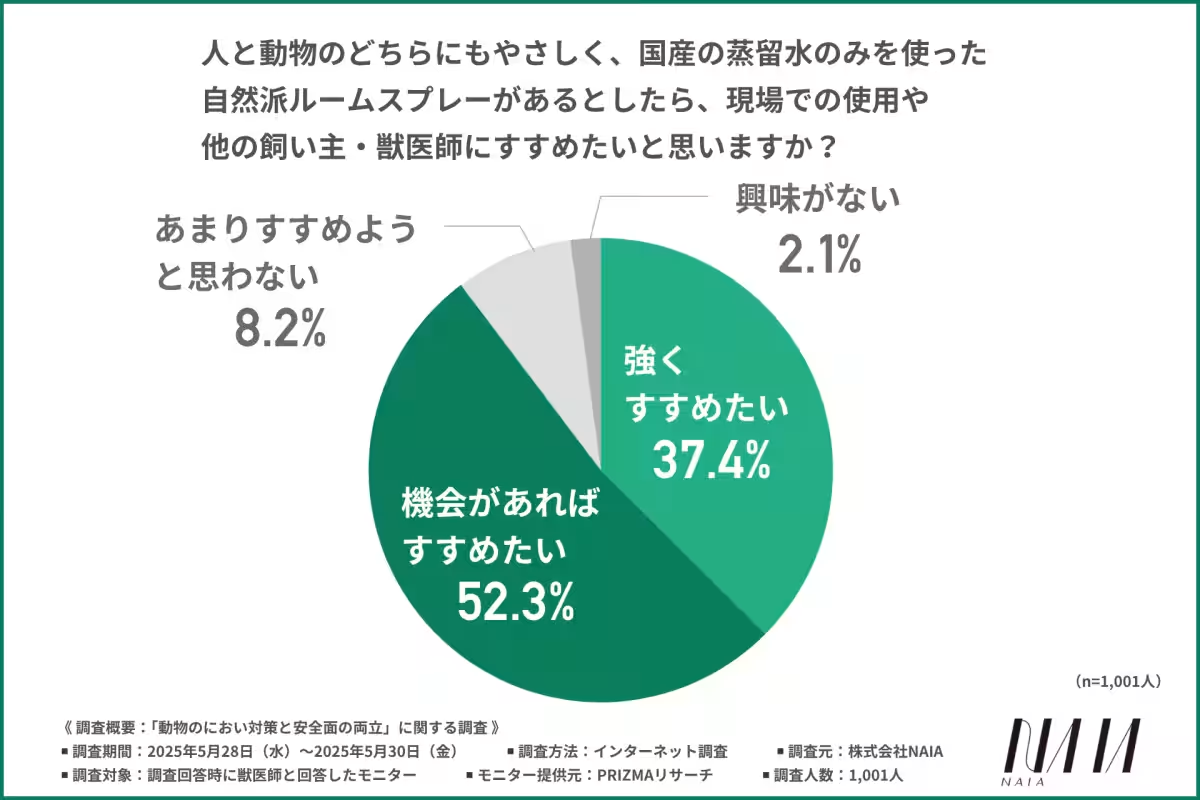
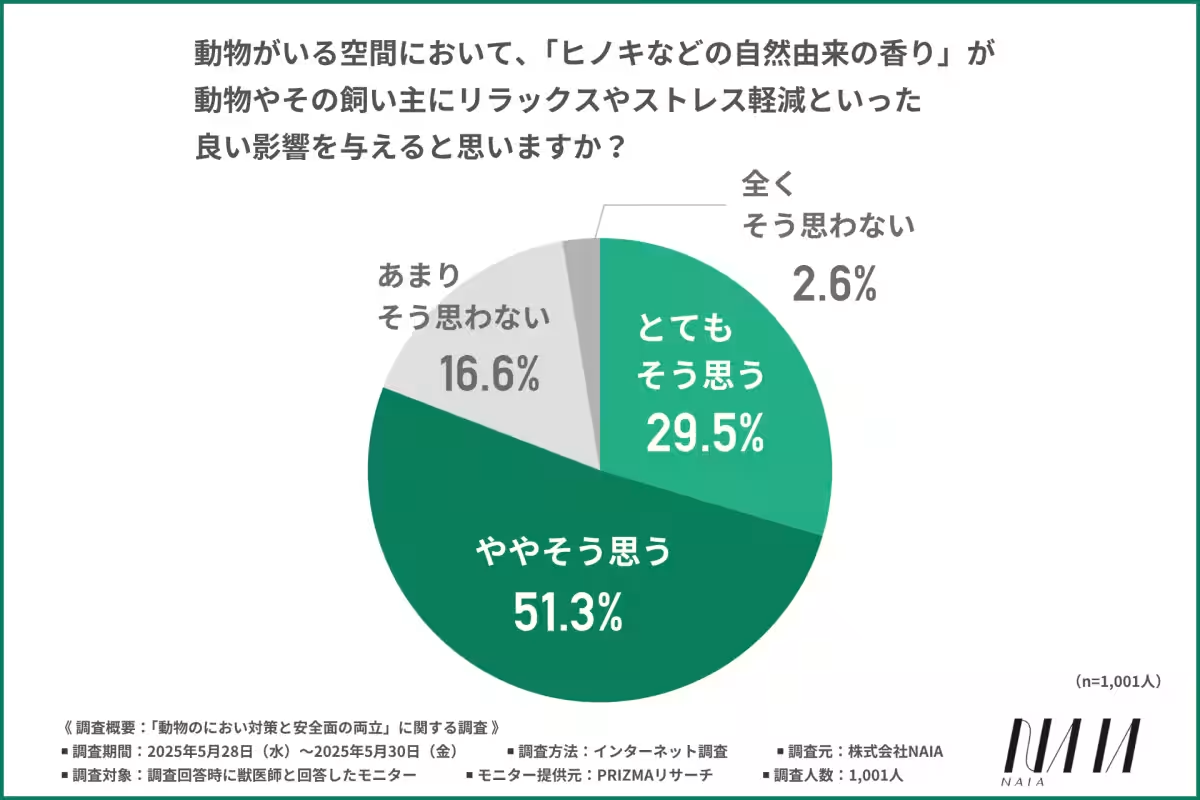
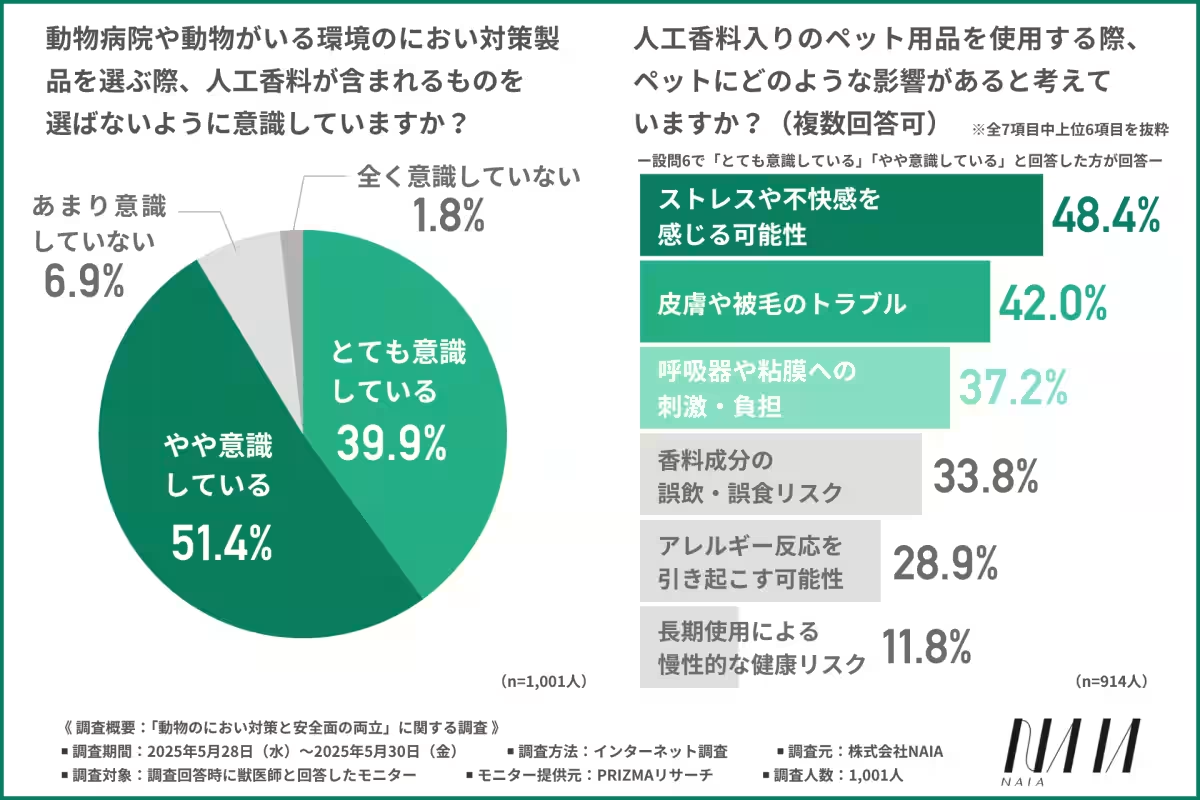
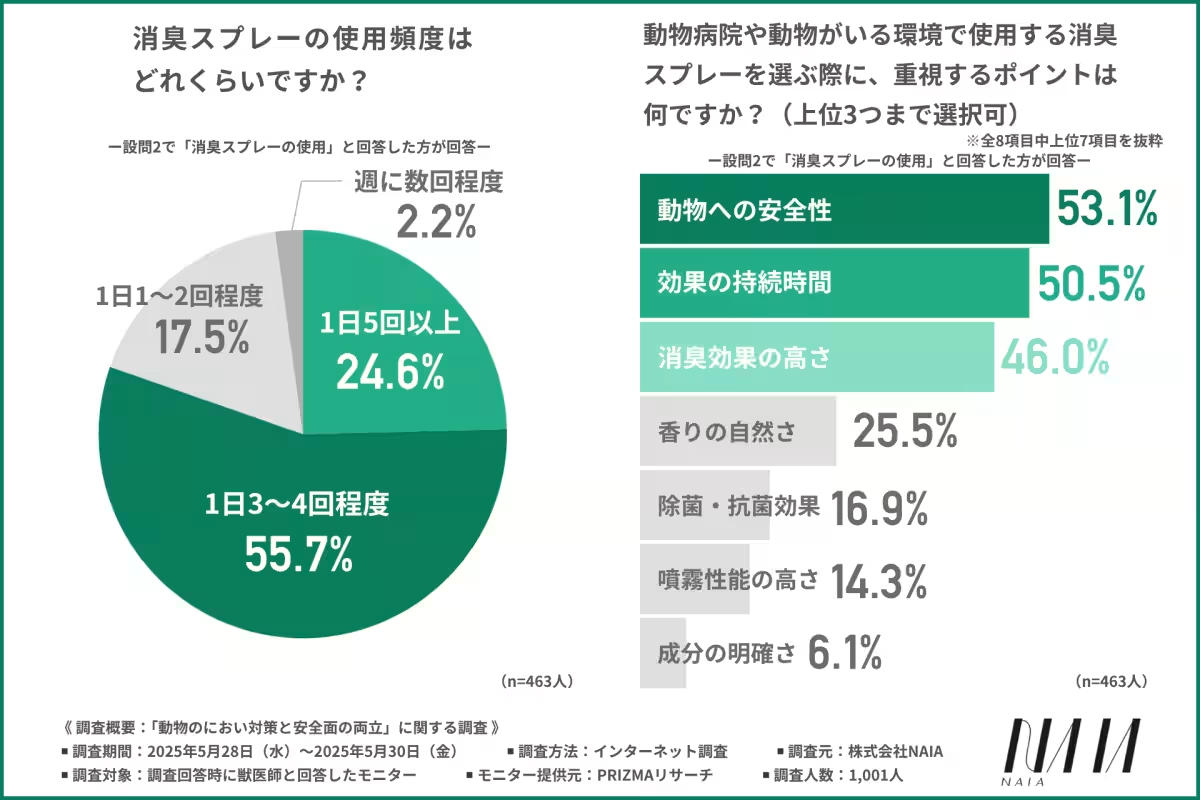
Topics Consumer Products & Retail)










【About Using Articles】
You can freely use the title and article content by linking to the page where the article is posted.
※ Images cannot be used.
【About Links】
Links are free to use.